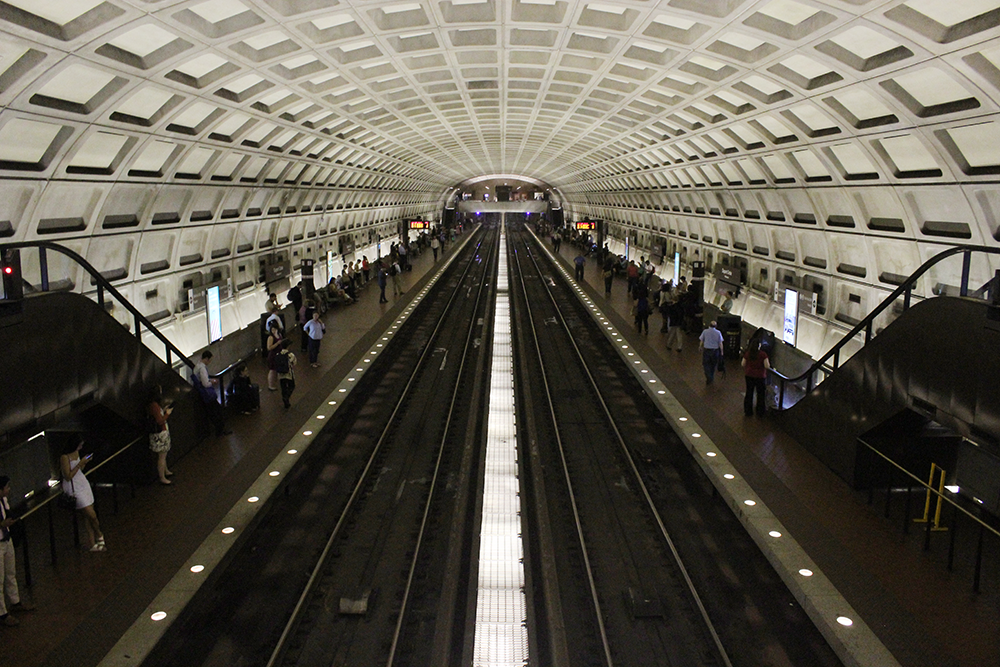The Washington, D.C. Council proposed a bill Nov. 7 to increase the city’s sales tax to 6.5 percent from 5.75 percent to fund repairs and other expenses for the Washington Metropolitan Area Transit Authority as the transit agency looks to fund capital improvement projects.
The proposal came before Metro announced a change to its policy Nov. 24, saying that it will no longer allow negative balances on SmarTrip cards, the system’s stored-value transit cards, in an effort to increase revenue.
The sales tax would apply to the greater D.C. region that is serviced by Metro, including suburbs in Maryland and Virginia. A panel of local leaders last April recommended a 1 percent increase, but the Council ultimately settled on 0.75 percent, as this was the lowest rate that would still provide the $500 million dollars the Council hopes to generate annually.
Starting Jan. 8, passengers will not be able to exit Metro stations unless they have at least $1.75 on their SmarTrip cards. Currently, Metro passengers who lack enough funds on their cards to pay for a trip can still exit a station when they tap their cards at fare gates; the fare they owe is subtracted from whatever balance they have. Still, exit machines only accept cash and coins — unlike regular fare-vending machines.

A panel of local leaders last April recommended a 1 percent sales tax increase, but the Council ultimately settled on 0.75 percent, as this was the lowest rate that would still provide the $500 million dollars the DC Council hopes to generate annually.
Metro cited a $25 million loss in revenue over the last 17 years for this change.
The Metropolitan Washington Council of Governments published a report April 26 outlining the possible funding solutions.
“Local governments cannot afford the steep bill for Metro’s needed capital and maintenance program while simultaneously financing their jurisdictional needs for schools and other critical infrastructure,” the report said. “Doing nothing is not acceptable.”
WMATA lacks a dedicated funding source, relying on the D.C. government and seven other local and state jurisdictions for funding. In the past, Metro has relied on fare increases and service cuts to make up for its financial shortfalls, though these actions worsen WMATA’s declining ridership.
Three left-leaning think tanks — the D.C. Fiscal Policy Institute, the Maryland Center on Economic Policy and The Commonwealth Institute for Fiscal Analysis — published a report in August advising against the sales tax proposal, citing a greater impact on low-income families.
The think tanks reported that lower-income families could experience an effect five times greater than middle and upper-class families. The report suggests that each participating jurisdiction be given a revenue goal, but each jurisdiction would come up with its own plan to raise the money.
The think tanks also proposed a tax on corporations because “they can best afford to pay and because they have benefitted most from D.C.’s growing economy.”
The Metro already increased fares last year, but it is against its policy to do so two years in a row, according to a spokesperson for WMATA.
Metro declined to provide a statement on the tax increase, citing it as a government matter, rather than a WMATA decision.
Maryland Gov. Larry Hogan (R) has proposed an alternate plan for fundraising, promising Maryland will put $500 million toward Metro funding over four years if Virginia and D.C. agree to do the same. This proposal has been criticized for not providing the adequate funds necessary for the Metro repairs.
Hogan wrote a letter to Mayor Muriel Bowser (D) and Virginia Gov. Terry McAuliffe (D) about his funding proposal.
“The region can no longer avoid taking action, and the needs of the Metro system are immediate and overwhelming,” Hogan wrote. “When comparing each jurisdiction’s investments over the past three years, and by any logical measure, Maryland has not only been paying our fair share, but actually more than our fair share.”
Residents of the region have expressed disapproval of this new sales tax plan, especially those who do not live in the immediate D.C. area and those who do not use the Metro often.
Charlotte Lindsay (COL ’20) said that she does not think that the increase in sales tax is fair to all D.C. Metro area residents. The Georgetown neighborhood’s lack of a Metro stop means that she rarely uses the trains to commute through the city.
“I would say that it’s a little frustrating since sales tax is already pretty high here, and we don’t at all have easy access to a Metro,” Lindsay said. “Almost one percent seems pretty high. Given that [the rates are] already pretty high, and D.C. already is an expensive city, I don’t think that that would be at all ideal.”
Metro’s Chief Financial Officer Dennis Anosike said in a Nov. 24 news release that Metro’s current economic needs were a factor in this decision.
“In an environment where every dollar counts, we are taking a common-sense approach to ensure that Metro is properly collecting the value of the transportation it provides in order to reduce the demand on Metro customers and the region for additional funding,” Anosike said.
The sales tax bill has been referred to the Committee on Finance and Revenue for further consideration. WMATA was unable to provide a statement as of Thursday night.




















